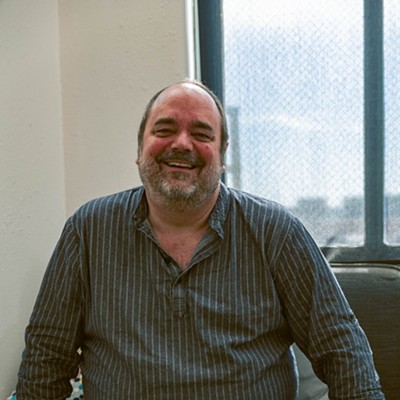Don't blame the system: We've been hearing a lot of chatter from commenters on the Observer's Web site about how former city council member Don Hill's trial on charges of corruption is, in fact, an indictment of the city's 14-1 council system. Under 14-1, created under federal court order in 1991, the 14 council members are elected from single-member districts, with only the mayor elected from the city as a whole. The present setup replaced an 8-3 system, with three at-large council members. In a nutshell, the 14-1 critics argue that by investing too much power in individual council members, the opportunities for corruption multiply and ideas that might be good for the city as a whole get short shrift.
Buzz ran that notion by Mike Daniel, one of the attorneys on the winning side in the lawsuit that led to 14-1. His immediate response, and we're quoting him directly, was this: "HAH, HAH, HAH!"
OK, so obviously Daniel isn't buying it. He remembers how City Hall worked before 14-1.
"Either they're newcomers, or they have long-term memory loss," Daniel says of the commenters. "The power was even more concentrated then [before 14-1]. It was concentrated in the hands of a few people who lived within a few miles of each other...If you think they were acting in the best interests of the city, then you haven't driven south of the Trinity for 50 years."
The faults at City Hall exposed by Hill's trial lie not with the system, Daniel suggests, but with the gentleperson's agreement council members have cooked up that gives individual council members the final say in development and zoning cases in each of their districts.
That's the kind of concentrated power that leads to council members like Hill receiving suspicious payments of cash in church parking lots. It's ward politics, but as Daniel pointed out, Dallas had wards before 14-1—one big ward for the white people of North Dallas. The rest of the city was ignored.
Developers with good projects should be able to secure a majority of eight votes on the council without answering solely to the lord of a council fiefdom, he says.
He's right, of course. One of Mayor Tom Leppert's recent reform proposals would require extra council members to second motions on zoning cases, reducing an individual council member's power.
That's a sensible reform, we think. Then again, because it's sensible, we also think it doesn't stand a chance. Which leaves us with Plan B for cleaning up City Hall—electing better people.
Maybe we need a Plan C.—Patrick Williams











